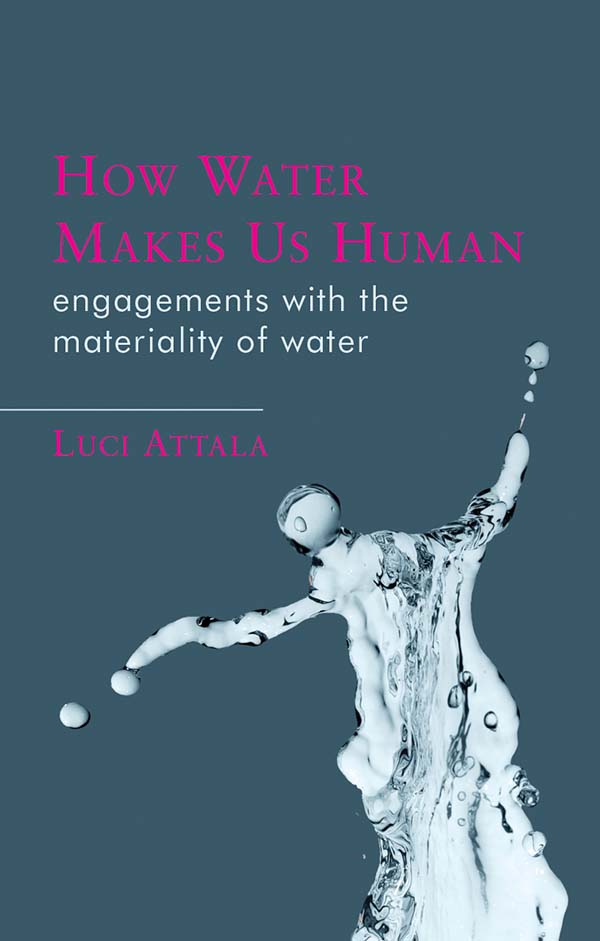How Water Makes Us Human
Engagements with the Materiality of Water
Author(s) Luci Attala
Language: English
Genre(s): Philosophy
Series: Materialities in Anthropology and Archaeology
- April 2019 · 208 pages ·216x138mm
- · Paperback - 9781786834119
- · eBook - pdf - 9781786834126
- · eBook - epub - 9781786834133
This book is about how water becomes people – or, put another way, how people and water flow together and shape each other. While the focus of the book is on the relationships held between water and people, it also has a broader message about human relationships with the environment generally – a message that illustrates not only that people are existentially entangled with the material world, but that the materials of the world shape, determine and enable humans to be ‘humans’ in the ways that they are. Offering a selection of anthropological examples from Kenya, Wales and Spain to illustrate how water’s materiality coproductively generates the way people are able to engage with water, this book uses cross-disciplinary perspectives to provide and promote a new analytic – one that encourages ethical, holistic and sustainable relationships with the world around us. This approach challenges representations that ignore, sidestep or are blind to the fleshy materiality of being human, and aims to encourage a re-imagining of the world that acknowledges humanity as intrinsically active-with and part of the fabric of the collection of materials we call planet Earth.
Acknowledgements
Preface
Part One
Chapter 1: Introduction
The direction and purpose: New Materialities
Materiality/Material Culture/ New Materialities
Why water?
People: bodies and water
Agency
Chapter 2: Water Behaviours: A Brief Ethnography of Water
What is water?
First light, then water
Being liquid: physics, classifications, breaking the law and transformation
How can one know water? Liquid behaviours
The importance of movement: molecular sociology
Solvents and solutions
But how does water move? Circles, cycles and snakes
The earth and the air
Water: the shape of life and when water is human
Chapter 3: Resource or Source: How to Approach Water in the Time of Climate Change
Part Two
Chapter 4: Introduction to Part Two
Chapter 5: The Giriama in Kenya: Living with Drought
Water practices: rain, roofs, rivers and water basins
Headcarrying: water shaping gendered bodies
Giriama conceptions of water
Fu ha mwenga: fluidity and identity
Watery identities
Identity solutions: blending place, power and water
MaKaya: home from home
Giriama waters and authenticity: understanding the materiality of water
Chapter 6: Lanjaron, Spain
Slow water: glaciers, ice and snow
The Moorish influence: hydrologers
Invisible waters
Not all waters are equal
Mineral water: healing and destruction
Change: festivities and water
The ritual
Chapter 7: Welsh Water: The Resourcefulness of Water
Establishing Welsh water: then and now
The language of water
Discourses of deluge
Water relationships, powers and control
Memories of floods and flooding
Water and memory: remember Tryweryn
Yma o hyd (Still here)
Chapter 8: Concluding Remarks
References
Index


